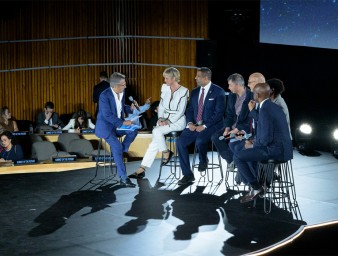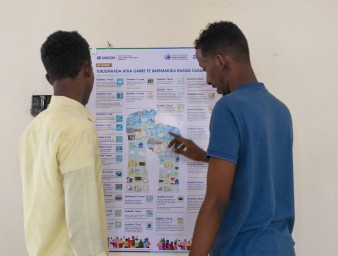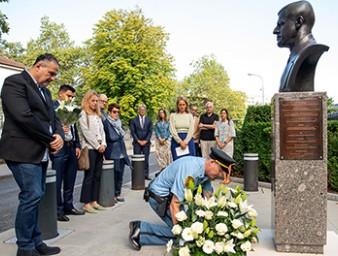Türk: More is needed to expand support for human rights
23 January 2023

After launching a yearlong initiative to mark the 75th anniversary of the Universal Declaration of Human Rights (UDHR) and urging UN Member States to renew their commitment to realise the ideals of that historic document, UN Human Rights Chief, Volker Türk, has made an appeal for USD 452 million to support and expand the work of his Office in 2023.
“To renew our determination to bring the words of the Universal Declaration back to life […] we need to ensure economic, social and cultural rights as equal partners to civil and political rights,” Türk said. “We need to insist on action – globally and domestically – that addresses inequalities; strengthens social protections; and eliminates discrimination and other root causes of conflict, environmental crises and misery.”
UN Human Rights has 1,836 staff between its Geneva and New York headquarters and 101 field presences. Extra-budgetary donations, Türk said, continue to be vital to its capacity to meet the needs and requests of States and partners, and to carry out their work to benefit peoples’ lives as well as to anchor human rights in laws, economies and practices.
UN Human Rights’ top donors
- Sweden
- European Union
- United States
- Norway
- Germany
In 2022, UN Human Rights received USD 240.8 million from 87 donors. This represented a 5.7 percent increase compared with contributions in 2021, but only 60 percent out of the USD 400.6 million extra-budgetary resources needed last year.
Financial assistance in recent years has allowed UN Human Rights to support efforts to rebuild institutions, expand civic space and support legal reforms for the protection of human rights. The Office was further able to perform more detailed crisis monitoring and deploy surge capacity staff in response to early warning signs in several situations.
The Office also increased its support to human rights investigations and enhanced its ability to produce statistical data on discrimination; civilian deaths in conflict; killings and disappearances of human rights defenders, journalists and trade unionists; and progress of national human rights institutions – making UN Human Rights a key source of information for development partners and others.
“Today, we need urgently to build on and expand this proactive and practical approach. Our UDHR75 initiative will include multiple actions aimed to reinvigorate and ensure that human rights offer solutions to some of our most pressing challenges,” Türk said.
A time for renewal
He further vowed to also take the opportunity of the 75th anniversary of the UDHR to renew his Office by strengthening its links with the UN system and the international human rights machinery.
“Human rights tools and guidance need to inform the design and delivery of UN activities in a powerful, action-oriented and seamless manner. We need to build further on the Secretary-General's Call to Action and Our Common Agenda,” he said. “It is especially important that we move swiftly to deepen our work with development actors across the UN, to help place the Sustainable Development Agenda back on track for people and the planet by 2030.”
Türk also indicated that 50 Human Rights Advisers deployed by his UN Human Rights to UN Country Teams have provided essential guidance on human rights-based budgeting; a human rights approach to data collection; and policy and programming that leave no-one behind. However, seven of these postings are now in jeopardy due to a shortage of funds.
The 40 percent funding shortfall of 2022 has limited the capacity of UN Human Rights to positively respond to technical cooperation requests by several States, including in the Pacific region, Southern Africa and the Caribbean, where field presences could not be given additional capacity.
“Without human rights there can be no enduring peace. No sustainable development. No justice,” Türk said. “That profound insight is at the core of the Universal Declaration of Human Rights and the UN Charter.”



